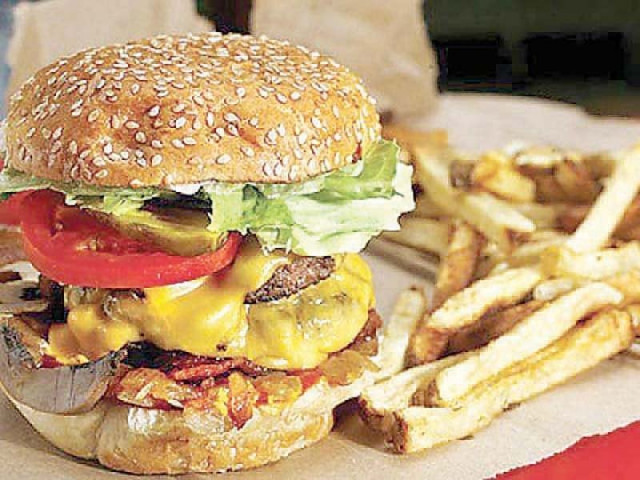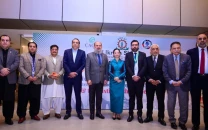Food processing and value addition – a missed opportunity
Country needs to devise realistic policy for enhancing food processing, value addition

PHOTO: FILE
Most reputable food units include both multinational and national brands. The food industry accounts for 3-5% of value addition, which can be easily enhanced up to 10% through research-based capacity building of farmers, service providers, processors, entrepreneurs and traders.
Pakistan is among world’s top 15 countries in the production of major food-related crops. A variety of food crops, fruits, vegetables and animal breeds are produced in the country, which are sufficient for domestic needs besides contributing to exports.
With over 200 million consumers, Pakistan holds the status of world’s eighth largest market. Consumers spend an average 42% of income on food. Food processing provides 16% of total employment in the manufacturing sector.
Higher disposable income spurs processed food industry
Over 75% of rural-based food manufacturers are running in the informal sector, which may find it difficult to have quality raw material, proper skills, knowledge and management.
Pakistan’s food sector is changing significantly with a rapid shift in lifestyles and traditional eating habits. Retail sales of processed food are expanding 10% per annum with current estimated size of about $1.4 billion (including $325 million worth of imported products).
Supermarkets are gaining more popularity as a shopping venue and account for about 10% of all retail food sales. In addition to these, Pakistan now hosts numerous western-style fast-food chains, reflecting a rising popularity for such food.
Despite tremendous potential and opportunities, the food processing industry in Pakistan faces numerous challenges. The ability of food processors at the industrial level depends absolutely on the availability of raw material but they mostly lack value addition.
Pakistan is a major producer of commodities and industrial crops such as wheat, rice, sugarcane and oilseeds. Livestock and horticultural products are also important elements in agriculture and provide additional raw material for processing and export.
A significant portion – 30-40% – of the total fruit and vegetable produce is wasted and degraded due to the lack of proper harvesting tools, insufficient on-farm storage, processing and packaging facilities, difficulties in cool chain management and storage, absence of international standards for quality and safety, and lack of adoption of global Good Agricultural Practices (GAP).
Other areas of concern include lack of vertical and horizontal integration in public and private sectors, lack of awareness, low capacity and skills including market intelligence, policy issues and insufficient data on food processing and value addition.
Consequently, Pakistan’s economy is incurring losses of over $10 billion per annum due to these challenges.
Despite the obstacles, the industry comprises thousands of food processing units, generating millions of job opportunities in the country.
PFA finalises draft regulation to curtail food wastage
The size of the global processed food industry is estimated at around $3.5 trillion and it accounts for three-fourths of the global food sales. Employment in the US food industry is around 12 million and in Europe it is 2.5 million.
Most of the growth is taking place in developing countries in Eastern Europe, Asia and the Pacific, which are recording an increase in population, though major units are owned by American and European companies.
Japan is the largest food processing market in the Asian region followed by India and China. The huge market in Asean countries alone, with over 550 million people, provides a vast potential that needs to be tapped.
Despite its large size, only 6% of processed food is traded across borders compared to 16% of major bulk agricultural commodities. Fortune 500 indicates the food sector has been growing 15.9% annually over the past five years. Convenience products such as dried and instant food, reconstituted fruit juices, fruit juice concentrate like freshly squeezed juices and shelf cooking are becoming popular the world over.
Way forward
Though Pakistan’s food processing and value-addition industry faces many challenges, there is a great potential that can easily be exploited by tapping the available opportunities. Therefore, there is a need to devise a realistic and achievable national policy and strategic framework for enhancing the quality and volume of food processing and value addition in Pakistan.
Following actions need to be taken immediately:
- Encourage and facilitate small-scale food processing units at household and village levels.
- Ensure capacity building and credit facilities for small and medium enterprises in food processing and value addition.
- Ensure adequate marketing facilities at the village level.
- Increase awareness and disseminate information for promoting food processing, value addition and marketing.
The writer is a PhD in natural resources management and is a civil servant
Published in The Express Tribune, June 24th, 2019.
Like Business on Facebook, follow @TribuneBiz on Twitter to stay informed and join in the conversation.



















COMMENTS
Comments are moderated and generally will be posted if they are on-topic and not abusive.
For more information, please see our Comments FAQ